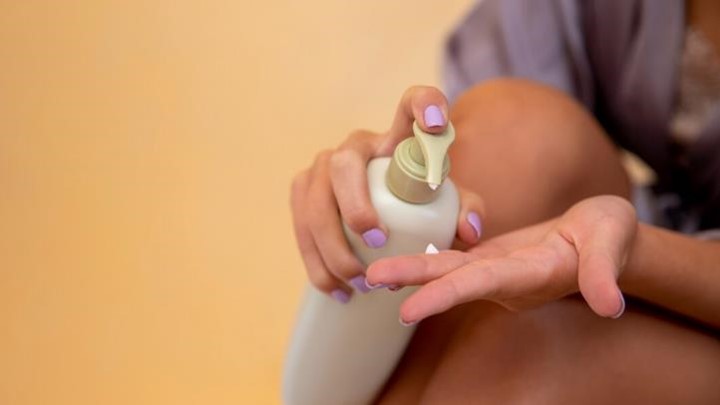The journey of pregnancy and breastfeeding is a beautiful time of transformation. However, ensuring your well-being and your baby’s safety becomes your top priority. While you might meticulously avoid certain foods and medications, have you paused to consider your skincare routine? Some popular and seemingly harmless skincare ingredients could have unexpected effects during this delicate time.
In this guide, we’ll discuss skincare ingredients to avoid and uncover some that warrant caution during pregnancy and breastfeeding. It’s about embracing changes to your routine, temporarily swapping familiar products, and prioritizing nurturing your growing life over flawless skin. Let’s navigate this journey together!
Skincare Ingredients to Avoid While Pregnant
Pregnancy is a special time when self-care takes center stage. However, in the realm of skincare, certain ingredients demand cautious consideration to ensure the safety and well-being of both the expectant mother and the developing baby.
1. Retinoids
Retinoids, including retinol and tretinoin, are celebrated for their skin-renewing properties. However, caution is warranted during pregnancy due to the potential risk of birth defects associated with high doses of vitamin A, prevalent in retinoids. While evidence isn’t conclusive, opting for alternatives like Bakuchiol provides similar benefits without perceived risks.
This ensures a nurturing approach to skincare, allowing expectant mothers to maintain their routines safely.
2. Salicylic Acid
Salicylic acid, a beta hydroxy acid common in acne-fighting products, requires careful consideration during pregnancy. In high concentrations, it may pose potential risks. Exploring alternatives like glycolic acid or lactic acid for exfoliation becomes a prudent choice. These alternatives offer gentler approaches to skincare, addressing concerns without compromising maternal or fetal health.
Open communication with healthcare professionals ensures personalized guidance, allowing expectant mothers to make informed choices about their skincare routines.
3. Chemical Sunscreens
Certain chemical sunscreens may contain oxybenzone or avobenzone, raising concerns about absorption into the bloodstream. While the impact of these chemicals on pregnancy isn’t fully understood, opting for physical sunscreens with zinc oxide or titanium dioxide presents a safer alternative.
Physical sunscreens create a barrier on the skin’s surface, deflecting and scattering UV rays without the need for chemical absorption. This choice aligns with the principle of minimizing potential risks while safeguarding both maternal and fetal health.
4. Essential Oils
While some essential oils are generally considered safe, others can be potent and may impact hormonal balance. Consulting with healthcare professionals and avoiding oils like rosemary, basil, and sage when in doubt ensures a cautious approach to skincare. Understanding individual sensitivity and the potential impact of essential oils on hormonal fluctuations becomes pivotal.
The goal is to strike a balance between nurturing the skin and ensuring the well-being of both the expectant mother and the developing baby.
Skincare Ingredients to Avoid While Breastfeeding
The postpartum period, especially during breastfeeding, demands continued attention to skincare choices. Here are specific ingredients to be mindful of during this phase.
1. Retinoids (Topical)
Topical retinoids should be approached with caution during breastfeeding. While there’s limited evidence on the systemic absorption of topical retinoids, erring on the side of safety is advisable. Exploring alternatives like bakuchiol provides a bridge between skincare efficacy and safety during breastfeeding.
Bakuchiol mimics the benefits of retinoids without the potential risks, offering a reassuring option for mothers seeking to maintain their skincare routine while prioritizing the well-being of their infants.
2. Hydroquinone
Hydroquinone, common in products targeting hyperpigmentation, raises concerns about its safety during breastfeeding. While there’s uncertainty about its impact, opting for natural alternatives becomes a prudent choice. Ingredients like licorice root extract or vitamin C offer gentler approaches to addressing hyperpigmentation without compromising the safety of breast milk.
Making informed choices involves consulting healthcare professionals, ensuring that skincare decisions align with both the mother’s desire for radiant skin and the importance of providing a safe environment for the breastfeeding infant.
3. Benzoyl Peroxide
For mothers dealing with postpartum acne, the choice of skincare ingredients gains heightened significance. Benzoyl peroxide, an effective acne-fighting ingredient, is generally considered safe in small amounts during breastfeeding. However, choosing gentler alternatives like azelaic acid presents a balanced approach to addressing acne concerns without introducing potentially harsh ingredients.
Maintaining communication with healthcare professionals remains crucial, as individual factors and the unique characteristics of each breastfeeding journey may influence skincare choices. Striking a balance between effective skincare and the safety of breast milk ensures a holistic and well-informed approach for nursing mothers.
4. High Levels of Vitamin A
Excessive vitamin A intake, whether through supplements or skincare products, poses potential concerns during breastfeeding. While vitamin A is essential for overall health, moderation becomes key. Opting for formulations with moderate levels or considering beta-carotene-based options provides a safer approach to ensuring the mother’s well-being and the health of the breastfeeding infant.
Understanding the nutritional needs during breastfeeding and aligning skincare choices with these requirements ensures a comprehensive and thoughtful approach. Seeking guidance from healthcare professionals ensures that the skincare routine contributes positively to both maternal and infant health.
Skincare during pregnancy and breastfeeding requires a discerning approach, and avoiding certain ingredients is key to ensuring both maternal and infant well-being.
In Conclusion
While a temporary change in your skincare regimen might seem like a sacrifice, remember the immense reward that awaits. Your choices prioritize the well-being of your little one, ensuring a healthy start to their life. It’s important to consult with your doctor or a dermatologist when considering any skincare product during pregnancy or breastfeeding. They can help you make informed decisions, guiding you towards alternatives that are safe and effective.
Remember, your body is changing, your hormones are fluctuating, and your priorities are shifting. This season is about embracing these changes, prioritizing your baby’s safety, and finding gentle alternatives that keep your skin healthy. It’s a beautiful reminder that true radiance comes from the incredible journey you’re on – the journey of motherhood. Read this article on evergreen herbal supplements.
Discover more from Akanne Care
Subscribe to get the latest posts sent to your email.

